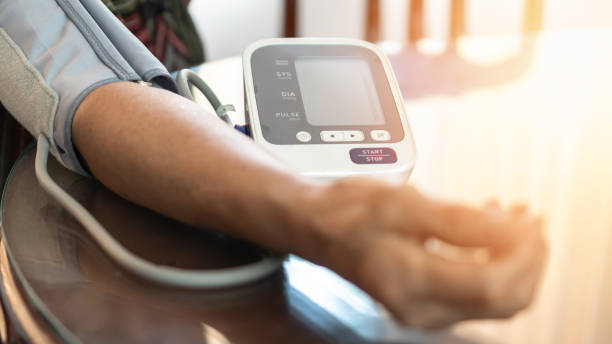Blood pressure and pulse are two measurements that a doctor may use to monitor your heart and overall health. While they’re similar, they can each say very different things about what’s happening in your body.
Pulse, also called heart rate, refers to the number of times your heart beats in one minute. Typical pulse measurements range from 60 to 100 beats per minute.
Blood pressure is an estimate of the force your blood is exerting on your blood vessels. A typical value for blood pressure is 120/80. Doctors consider blood pressure to be elevated when it’s between 130 and 139 systolic (the top number) over 80 to 89 diastolic (the bottom number).
If you have high blood pressure with a low pulse, it means your blood is putting increased pressure on your blood vessels, but your heart’s beating fewer than60 times per minute. Read on to learn more about what this combination means for your health.
What’s the relationship between high blood pressure and low pulse?
To consider how your pulse and blood pressure can affect each other, think of your pulse as an electrical system and your blood pressure as plumbing. Your pulse is mostly controlled by electrical impulses. These impulses travel through your heart, telling the chambers to beat in even time. Exercise, stress, fear, and other factors can speed up your pulse. Being sedentary can slow it down. This electrical system stimulates the pumping motion that propels your heart’s plumbing system. When the “pipes,” or blood vessels, aren’t blocked, blood easily flows through them. If your blood vessels are narrow or have some kind of obstruction, your heart has to either squeeze harder or beat faster to pump blood. This results in high blood pressure. When your blood pressure and pulse are out of balance, it strains your heart. You might also experience a range of symptoms, including:- confusion
- difficulty exercising
- dizziness
- fainting or almost fainting
- fatigue
- shortness of breath
- weakness
What cause high blood pressure and low pulse?
Several things can cause a combination of high blood pressure and low pulse.Thickened heart tissue
Long-term high blood pressure can potentially lead to low pulse. High blood pressure can cause your heart’s tissues to remodel. For example, the tissue may become thicker in an attempt to beat harder. It’s harder for this thickened tissue to conduct electrical impulses. As a result, your pulse might slow down because it takes longer to transmit electrical impulses.Blood pressure medications
Some medications used for high blood pressure, particularly beta-blockers and calcium channel blockers, can also cause a low pulse. In order to lower your blood pressure, these medications decrease your pulse, reducing the workload placed on your heart.Traumatic injuries or internal bleeding
A traumatic brain injury or bleeding around your brain can also cause a combination of high blood pressure and a low pulse. Both injuries and bleeding increase pressure on your brain, leading to something called the Cushing reflex. The symptoms of Cushing reflex include:- slow heart rate
- high blood pressure
- irregular or very slow breathing






